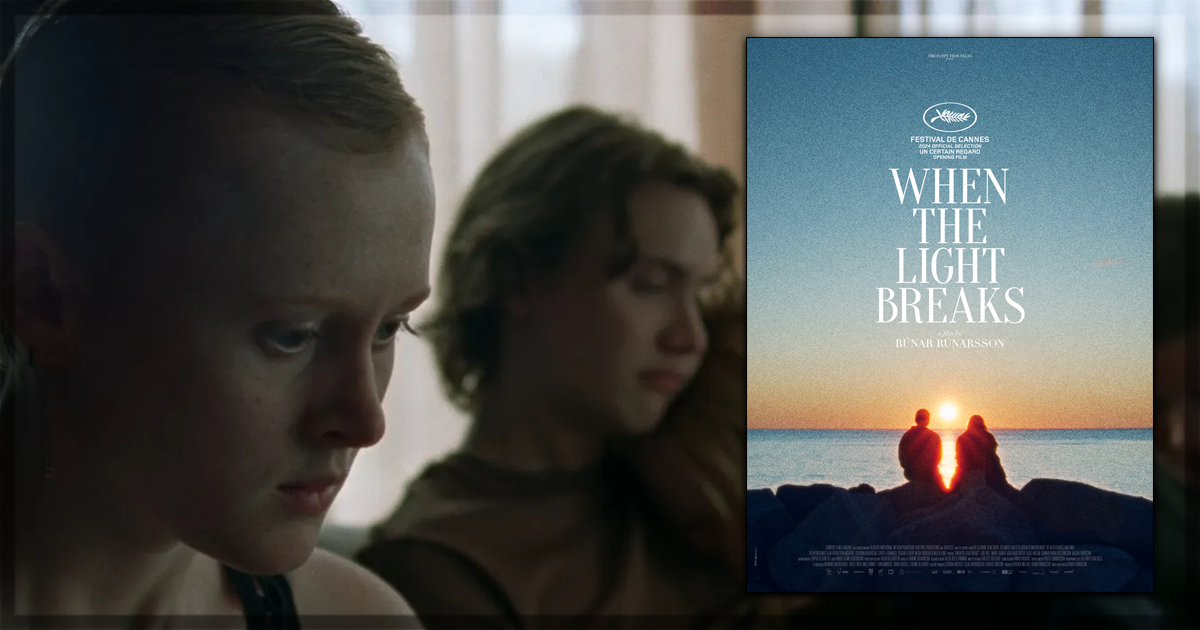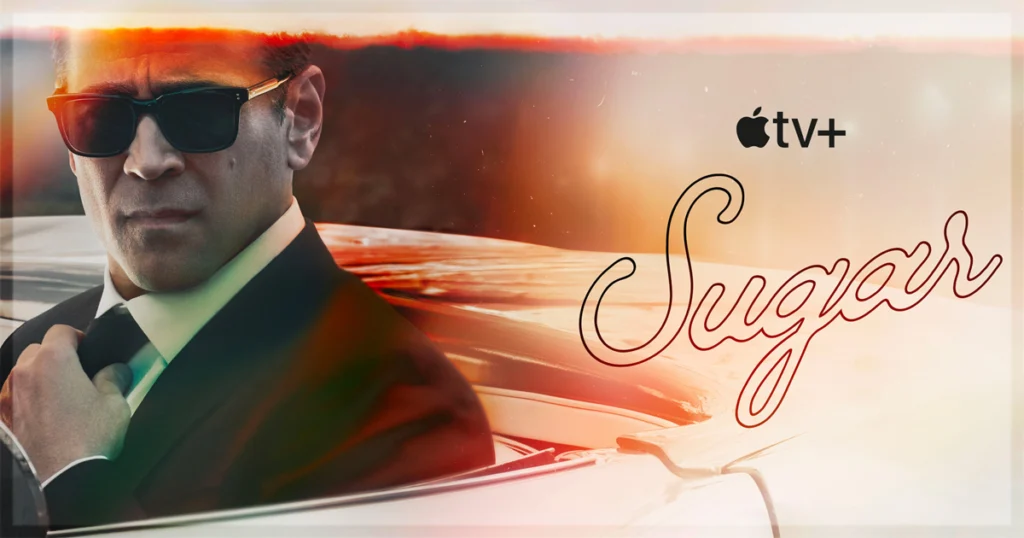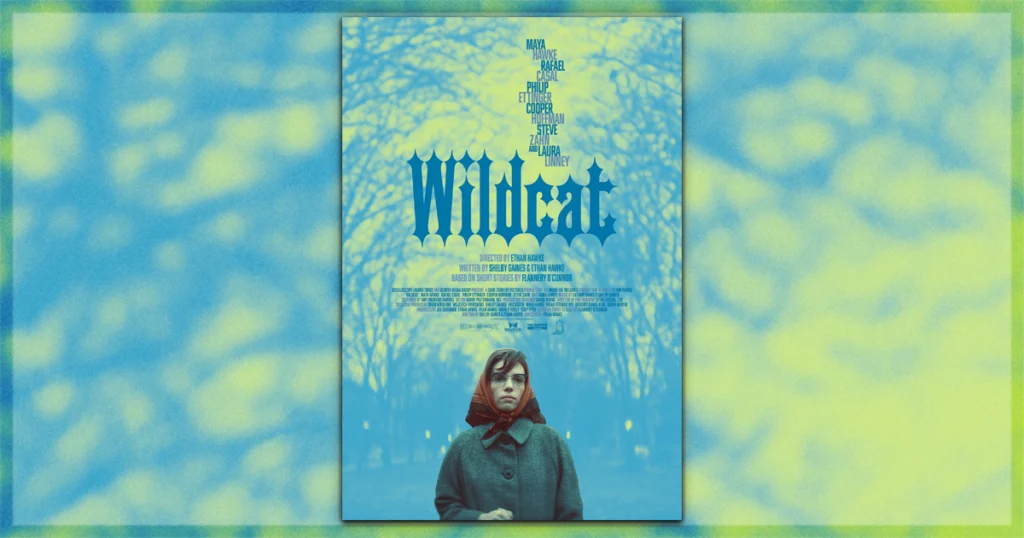There’s nothing like a sudden death to bring a community together, and there’s nothing like a tragedy to make people realize what’s truly important. This Icelandic movie, When the Light Breaks (Ljósbrot), is about the worst 24 hours in the lives of a group of young friends because, in the course of the day, they learn their friend Diddi (Baldur Einarsson) has died in an accident. He was an art student in his late teens, sharing a house with his childhood friend Gunni (Mikael Kaaber) and driving in Gunni’s borrowed car when a fire in a tunnel killed many of the people inside.
Diddi and Gunni were from such a small town that in their year of school there were only three others: Siggi (Gunnar Hrafn Kristjánsson), Bassi (Ágúst Wigum), and Klara (Katla Njálsdóttir), Diddi’s long-term girlfriend. But in Reykjavik, Diddi met the pansexual fellow student Una (Elín Hall), with whom he started both a band and a secret relationship, serious enough that Diddi asks her about having a baby the night before he dies. So, as the scale of the catastrophe becomes apparent and the city rallies together, Una must handle her public and her private griefs.
The pretentious and slightly ridiculous students at the core of the film are generally nice kids with experimental haircuts, a broad-minded attitude to sexuality, and a determination to be kind to each other as they turn their life experiences into art. Una’s family went traveling for most of her teens, so while she has seen the world outside of Iceland, she is now something of an outsider in her home, and she quietly but palpably longs for the deep bonds of close-knit friendship the other kids enjoy.
But despite being new, she’s fully one of the gang. It helps she works at Diddi’s favorite bar, where the manager gives everyone shots of Diddi’s favorite vodka on the house and reassures Una that, of course, he’ll cover her shifts. But of course, no one really knows why Una is so upset; no one else knows just how much she and Diddi mean to each other. With Klara there, she really can’t say anything.
This is the first time Klara, who doesn’t live in Reykjavik, and Una have met, and despite the dreadful circumstances, they realize they like each other. Ms. Njálsdóttir does a wonderful job, primarily through body language, of ensuring that the audience sympathy for Una fully understands Klara’s point of view as well. She has a tendency to clamber all over people, demanding hugs like a little kid, while the boys smoke countless cigarettes and hold each other up in turn when one of them breaks down. They stand around smoking and talking about school and whether the art that Una is devoting herself to serves any real purpose. Anything not to think about their grief.
Later, they end up at a small drunken gathering in someone’s house, where there’s a scene of such astonishing emotional power that it was certainly the reason the film was selected for Cannes. It’s about the power of community to help people endure when things become unendurable, and the brief scene as the kids all scream along to a song is as impactful as anything more overtly ‘dramatic’ in world cinema in some time. I’m crying just thinking about it.
Ms. Hall does spectacular work expressing the unbearable emotions Una is struggling to manage, and this is an incredible showcase for her, but it’s the kindness between the friends that echoes. That and Sophia Olsson’s gorgeous cinematography, which includes clever use of angles and reflections as Una and Klara struggle through the day; there’s a shot at the gathering of the two girls which is remarkable in both its simplicity and its effectiveness.
Despite this being a movie about death, writer-director Rúnar Rúnarsson has made a movie about hope. In the most cliched terms, it really is a celebration of life and the importance of making it a pleasure instead of a chore. It also remembers wholly how life does indeed go on, most notably in the brief sequence between Una and her dad, in which he can’t help but criticize her smoking. When The Light Breaks has an emotional impact much stronger than its brief running time, and anyone who has lost someone will appreciate the strength of its achievement.
When the Light Breaks (LJÓSBROT) is now playing at the Cannes Film Festival.
Learn more about the film at the Cannes Film Festival page for the title.



